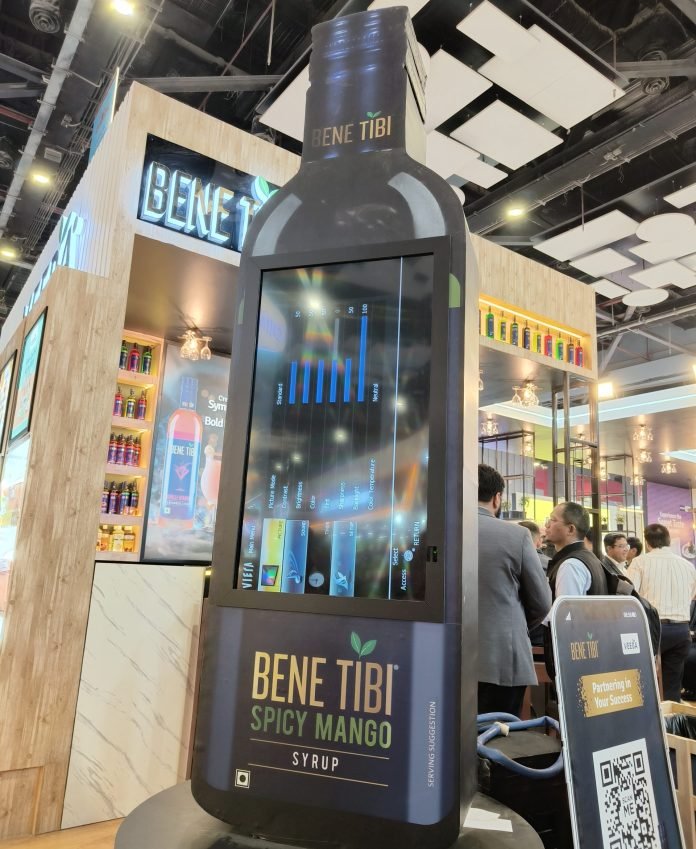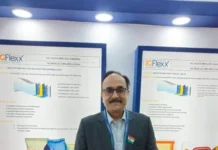Apart from food products, point of sale (POS) systems, QR codes and innovative stands were some of the highlights of the 38th edition of international food and hospitality fair Aahar 2024 in Delhi’s Pragati Maidan. To draw visitors and to make their stands more engaging, many F&B companies installed colorful banners and giant cutouts.

A point of sale refers to a landmark or system that increases the chance of a transaction between a merchant and a customer. Its purpose is to make a stand look more appealing to the visitors at a show or exhibition. It could be a physical model at the stand, where a customer interacts directly with a company, or on an LED display showcasing processes or product ranges.

POS systems also encompass digital platforms such as online stores and mobile apps, where information exchanges are conducted electronically. Modern POS systems often include components such as barcodes and QR codes. Displays featuring augmented reality (AR) are also a rising trend in exhibitions. Apart from the business expansion and brand promotion of MSMEs, Aahar offered an opportunity for companies to reconfigure their supply chains, logistics, and business models to reach their audience in a targeted fashion. Considered one of the biggest exhibitions in the food and beverage industry, the show hosted a wide range of food and food packaging solutions under one roof.
At the Paras Dairy stand, an Indian milk and dairy products provider established in 1960, Packaging South Asia spotted a cow cutout on a rotating pedestal along with the company’s packaged products. It became a point of attraction for visitors to stop by the stand that showcased milk, desi ghee, cow ghee, and milkshakes in a multitude of flavors.

An interesting stand was that of RK Box Makers, a gift packaging provider for wedding occasions and festivals. The stand itself looked like a gift box with UV lights strategically pointing to the products on display. The Delhi-based manufacturer claims to have a strong grip on the North Indian market and wants to expand further in West and South India.
Bakery products had the most creative displays, drawing the heaviest footfall among all exhibitors. The neatly designed cakes and pastries on display gave a bakery-like ambiance and feeling. Confect, a provider of birthday cakes and supplements, hosted a model of the Eiffel Tower covered with pink petals. Big Bash, a custom-designed cake maker, displayed its cake designs, frozen desserts, and packaged juices in an L-shaped, turquoise-colored stand.

Juice and syrup providers showcased large models of their packaged bottles, which at times doubled up as shelves. Bene Tibi, the syrup-making range of Veeba, used a model to launch its spicy mango flavor product, with an in-built LED screen advertising the product constantly.
Numerous exhibitors claimed sustainable practices, in both processing and packaging. Several stands had QR codes for information on products, instead of printed brochures. Visitors, however, faced network issues at Pragati Maidan. Poor cellular signal has been a long-standing problem at the massive exhibition center, which could discourage exhibitors from choosing a digital approach.
The POS systems have seen the integration of advanced features such as inventory management, customer relationship management (CRM), and analytics. These advancements aim to streamline operations and enhance the overall customer experience.











